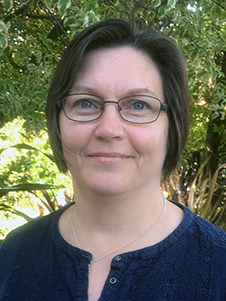
Associate Professor Caroline Beck.
When we think about studying the brain, frogs don't usually to come to mind. However, Associate Professor Caroline Beck is a frog expert who does just that. The Neurological Foundation has awarded a project grant to Associate Professor Caroline Beck, Dr Paul Szyszka (Department of Zoology), and Professor Lynette Sadlier (Department of Paediatrics and Child Health) to study a group of rare developmental epilepsy disorders using frogs as a model organism.
While frogs don't seem to be that similar to people, most of our genes are actually the same. Importantly, the life cycle of the frog makes it easy to observe their full growth and development, including of the brain. With cutting-edge tools, it is also very feasible to edit their genes to understand which genes might be responsible for certain diseases.
Caroline has a deep personal connection to a group of rare epilepsy disorders that develop during childhood, known as developmental epileptic encephalopathy (DEE). This means that she not only understands the frustrations and experiences of the families she is trying to help, but it also drives her passion for the project.
Caroline and the team will recreate gene disruptions found in six Kiwi patients in young tadpoles, to study how these disruptions change the brain and give rise to epilepsy. Medicines that could potentially help with these disorders can also be tested by adding them to the water the tadpoles swim in. There's something poetic about studying New Zealand-bred lab frogs to help New Zealand families.
While this work is in its early stages, Caroline is hopeful that they “might develop a system that can help answer some of the questions and bring together more pieces of the puzzle”.
